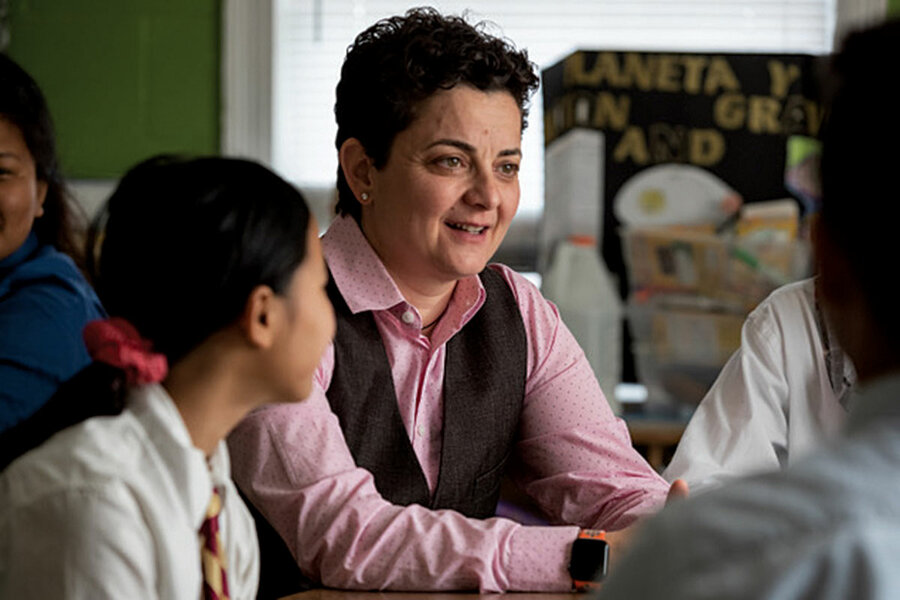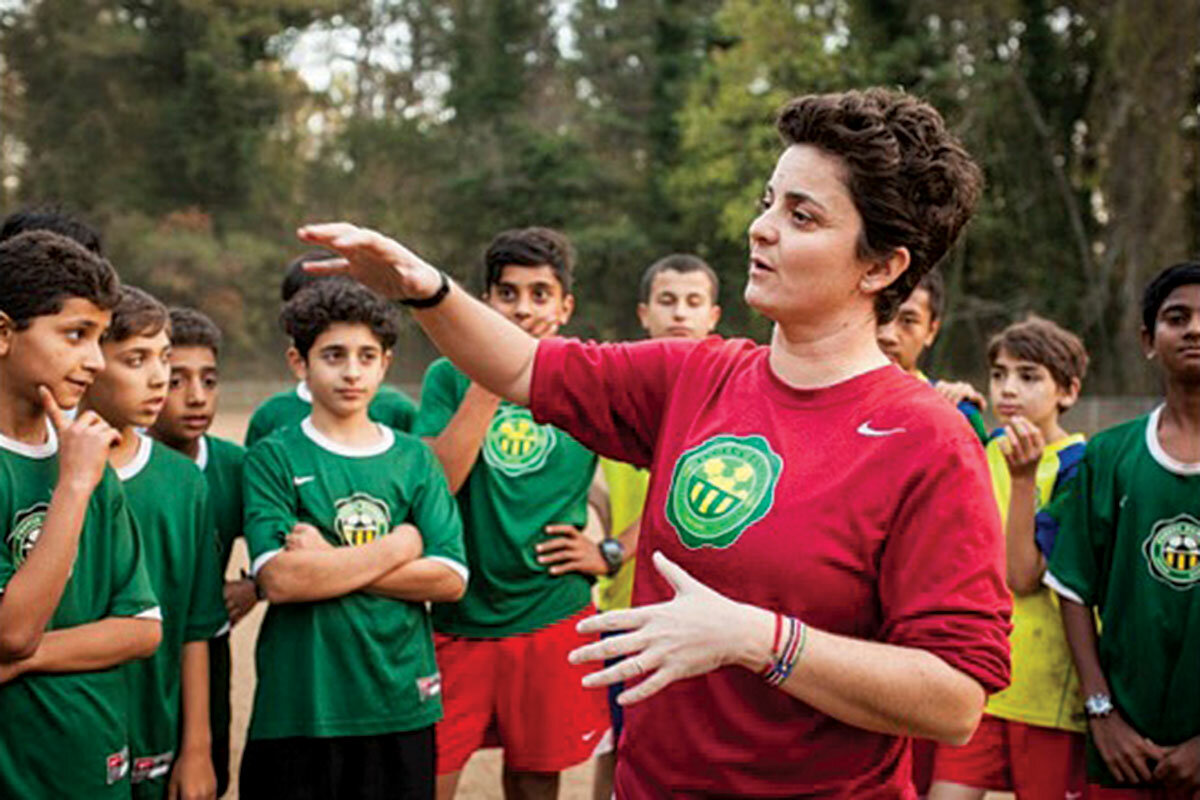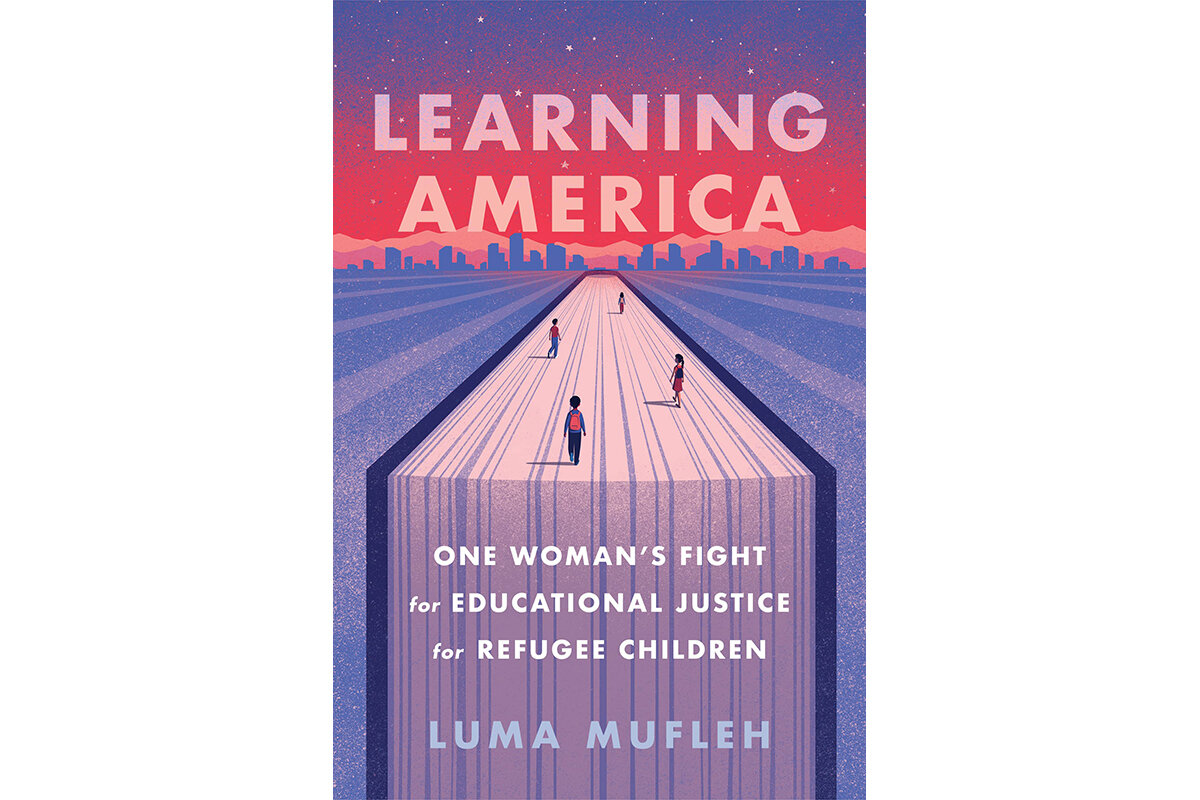She coached soccer for refugee children. Then she started schools for them.
Loading...
There are more refugees now than at any other point in recorded history, but Luma Mufleh, who founded the Fugees Academy schools to serve refugee children, knows that “statistics are numbing. … For people to care they need stories.” Her riveting debut, “Learning America: One Woman’s Fight for Educational Justice for Refugee Children,” is filled with them – affecting accounts of the experiences of her young students, who’ve come to the United States from Afghanistan, Sudan, Liberia, and other countries after being forced by war or religious, ethnic, or political persecution to leave their homes.
Mufleh’s own story is also compelling. Born to a privileged family in Jordan, she arrived in the U.S. to study at Smith College. During her senior year, she applied for asylum, fearing for her safety as a gay woman if she returned to her native country, where homosexuality is stigmatized and women can be the victims of so-called “honor killings.” She was disowned after coming out to her family.
Eventually Mufleh settled in Georgia, opening a cafe in Decatur. In 2004, after making a wrong turn, she pulled into the parking lot of a run-down apartment complex in Clarkston, outside Atlanta, to make a U-turn. There, a ragtag group of boys playing soccer caught her eye. Clarkston is home to a large refugee community, and the boys, some barefoot, reminded her of the street games of her childhood in Amman.
Why We Wrote This
It takes compassion and courage to see a need and fulfill it. For one woman, that meant starting schools specifically for refugee children in the United States.
Mufleh, by then in her late 20s, was an experienced soccer coach, helming a girls’ team for the YMCA. She asked the skeptical kids if she could join their game, enticing them with a new ball to replace their deflated one. The first half of the book, in clear, engaging prose, describes how, after that encounter, Mufleh went on to coach an expanding roster of refugee boys; within a couple of years, they numbered 60 players on three teams. She enrolled them with a league (team name: the Fugees) and raised money for uniforms and equipment. But her relationships with many of them extended beyond the soccer field as she was increasingly drawn into their lives, whether helping with grocery shopping and doctor appointments or intervening when they had problems at school.
Much of what she learned of her players’ situations distressed her. Only a tiny fraction of the world’s refugees get resettled in the United States, making them, Mufleh acknowledges, “lottery-winner lucky.” (The process for accepting refugees, she laments, is arbitrary and lacks transparency.) But she began to feel that the system was stacked against them. Many families who arrive in America are transported to bare-bones apartments and left with a bag of groceries and no other support. They’re required to reimburse the International Organization for Migration for their airline tickets; given that most refugees come with nothing, they begin their lives in America thousands of dollars in debt. “What could be more American than that?” Mufleh wryly asks.
Children begin their education in newcomer centers, where they are ostensibly caught up academically with their peers before being placed in public school classrooms. These centers, however, are poorly funded and disorganized. Mufleh was dismayed to discover that many of her players could not read or write, yet were promoted in school year after year.
The second half of “Learning America” describes the author’s “radical and yet simple” idea to confront some of these problems: a school specifically for refugee children. Mufleh founded the first Fugees Academy in Atlanta in 2006; she later opened two more, both in Ohio. The fully accredited public charter schools have rigorous academic programs – and, in a nod to their roots, a requirement that all students play soccer.
Some critics, Mufleh reports, are discomfited by the fact that the schools separate refugee children from the rest of the population. But the author, comparing the schools to women’s colleges like the one she attended and to historically Black colleges and universities, argues that they leave “more time to learn and less time having to advocate for the basic assumption of your worth.”
Indeed, by making the refugee experience the primary experience, Mufleh and her staff highlight all that their students’ families have accomplished. For instance, she frequently saw the public schools treat her players’ mothers, who often didn’t speak English and worked low-wage jobs, with contempt. “At Fugees Academy,” Mufleh writes, “we recognize the things our parents have achieved: protecting their children in war zones, starting over with nothing in a foreign country, working double shifts without complaint.”
Significantly, they also help the students, many of whom had been teased and bullied in the public schools, to see themselves differently. “If you survived hunger and war and profound loss, the challenge of graduating high school was surmountable,” she writes. “We needed to shift the way we looked at our students, to see their lived experiences as assets, not deficits.”
“Learning America” also describes how Mufleh herself “learned America.” She writes vividly about her childhood in Jordan, noting the influence of “artifacts from the West” like Motown records and Archie comics. Most influential of all, however, was the movie “9 to 5,” whose depiction of unapologetically strong women inspired her. Decades later, Mufleh herself is an inspiration.








